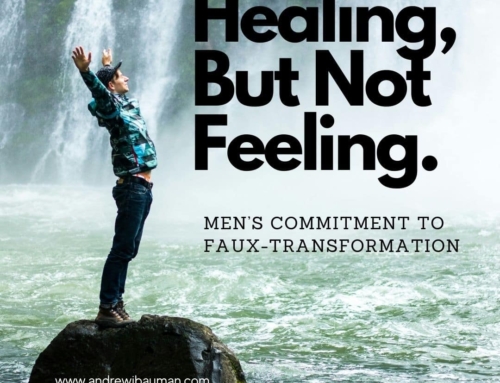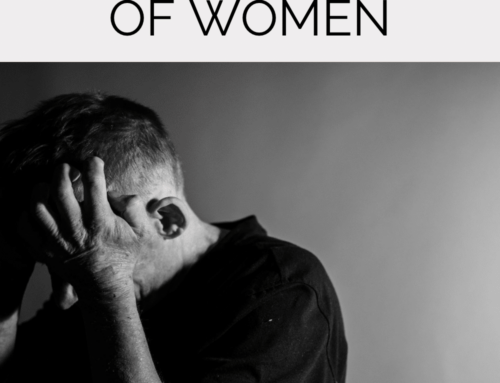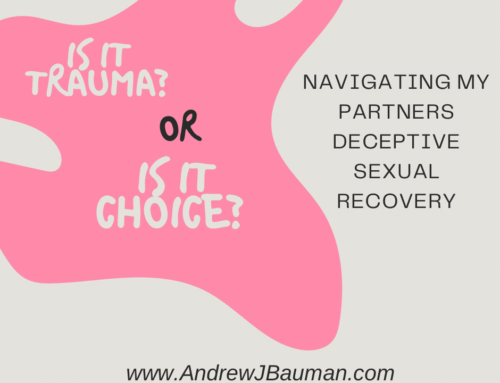I love women and I hate them. I need a woman close by to survive yet I can’t have a woman too close. If she gets too close, I will either self-destruct or annihilate her in a variety of socially acceptable, manipulative, systemic ways, like a brain surgeon using a scalpel. I have way too much power, and way too much fear to use my blade appropriately. This is the internal conflict for many men who struggle with sexual addiction.
The goal for men who are engaging in the dark side of our sexual addictions is first naming how we have disastrously botched our relationship with the feminine. Once we own our marred relationship to the feminine we can begin to step towards reclaiming what has been lost and courageously pursuing healthy relationship with women. To honor beauty rather than attempting to devour it. Though many men and women suffer from compulsive sexual behavior I will be using stereotypical gender roles in referring to a male’s addiction and its impact on his relationships, particularly with women.
An insecure woman who is full of self-contempt for her body and/or at war with her own gender is the unconscious perfect target for the insecure addict. (I use the word unconscious because I truly believe men who are struggling with sexual addiction are good men, who are unaware of the dynamics within themselves that they are playing out on the women in their lives). When a woman is fully selfed (Look at D.W. Winnocot’s idea of “True Self”) she is a deepening threat to the addict’s self-preservation and the self-doubting man will back away from her or potential lash out in violence at her after his initial attempts of wooing go unanswered. Once the addict’s shame is activated after a perceived “rejection” the typical response will be fight, flight or freeze. This will look like a combination of venom towards self (Self-Contempt) or projected outward (Other-Centered Contempt) and/or a relapse into their sexually compulsive behaviors to help self-soothe their narcissistic wounding.
Much of what the sexual addict masks are his deep insecurities and doubts about his own masculinity. Porn, for example, gives him that quick fix of affirmation that he needs to continue in his façade and feel power and powerlessness he so desperately longs for. (Many addicts like the feeling of being in control and controlled at the same time.) This also upholds the duality of living a secret sexual life vs. being the man he pretends to be in the public arena.
Sexual addictions can be used to cover a multitude of uncertainties within a man and can easily become a retreat from all things problematic. This place of reprieve from pain can feel like going to church. A sanctuary of addiction becomes a place of safety, worship, idolatry, and glorious gluttony. (As written about here). In this place of adoration, no one has permission to join in the addict’s sacred space of ritualized reverence. The non-addicted partner then longs even more for connection and genuine intimacy and will pursue the addicted one again and again. This constant search for genuine intimacy with the addict supports this “I love you & I hate you” dynamic. The internal dialogue within the addict goes something like this, “I want you woman because I am lonely and need people in my life, but I have no idea what to do with you when you are near, and you threaten the goodness of my dependence, so please go away.” I love you and I hate you.
This “push, pull”, “come here, go away” posture can be maddening for the partner who loves her addicted spouse, yet as her husband’s sexual dependency grows she will feel more and more like she can no longer connect to him emotionally. This is because sexual addiction pulls the user out of his body. He becomes more and more disconnected from his true self and more outside of his own being, watching himself live. To be embodied while using pornography would be problematic because we are participating in objectification, we must detach from reality so our experience can be more gratifying. The core of addiction is escape, escaping our own body is primary to the addictive process. Would I truly enjoy orgasm if I allowed myself to believe that my porn usage leads to acts of misogyny and to dehumanizing sexual behavior and non-positive views of women? (Bridges, 2010) (I wrote about this more fully here.) No way! I want to lie to myself as much as I can, so I continue to rest in the prison of my compulsions.
A Word to the Non-Addicted Partner
As the non-addicted partner navigates the many conflicting emotions she must continue to offer her truth and holy desire to her partner. To continually bring the fullness of her voice and her fear. “Where are you?”, “I am having a hard time finding you?”, “I miss connecting with you.”, “Are you using pornography again?”, “Will you get help?”, “I am lonely and not okay, can we get help?” These are all fitting questions as she makes an effort to locate her lost partner. With bringing her true self to her partner he will be forced to face his own false self. With consistent boundaries, setting higher standards of fidelity within the relationship, and continued focus on improving her relationship with herself the hope is that she can help create an environment where addiction does not flourish. Let me make one point abundantly clear though, it is not the woman’s responsibility to be an accountability partner or the sole support of the addict. He is solely responsible for his own integrity or lack. She must require truth and open authentic engagement but ultimately it is up to him what type of sexuality he will have.
Much of the work of the non-addicted partner is that of differentiation and creating boundaries rather than enabling the dysfunction to continue while in relationship, or turning a blind eye in willful ignorance. Support and love for the addict looks a lot more like holding your hand out rather than jumping into the raging river to attempt to save them from themselves. (See Differentiation article here for more).
It’s important for the non-addicted partner not to take on what it is not theirs, hence the vital importance of differentiation. Sexual addiction is not a personal attack against who you are or the goodness of your body. It’s not because something is wrong with your body or that your body is not “good enough” that your partner is going elsewhere to fulfill his desires. He is going elsewhere because he is addicted and normally has been for decades and this high consumption of porn has literally caused brain damage. (Your Brain On Porn Lecture) This is where as the non-addicted partner you’ll have to discern between a personal betrayal of your sexual commitment, and not believing that something is deficient within yourself, though many times the addicts in denial may want to project that onto you. Sex addicts have mastered the ability to sabotage genuine intimacy and shifting responsibility away from themselves. It’s most likely not your fault that you and your addicted partner are having troubles emotionally connecting, isolation is at the very core of all addiction.
As addicts who we want to be is seldom who we are, if we allow someone to get close enough to us we will be exposed for the frauds that we truly are, so we isolate, hide from truth and sabotage at all cost. I remember when Christy and I were just beginning to get more serious about our relationship. As it looked more and more like we were heading toward marriage, I freaked out. I sabotaged our relationship, I was unfaithful to what we were feeling towards each other and instead of owning that fear, and being truthful with my anxiety, I pulled away, acted childishly and tried to get her to leave me first, so I didn’t have to be the “bad guy”. I was a coward. I knew she was a real woman, and I was not quite ready to be a real man. I felt like a boy inside, and her “fullness” of her womanhood terrified the shit out of me and heightened all of my unaddressed insecurities. I finally came to the point of surrendering to the greater good despite my fear, but it took many painful come to Jesus moments to get to there. I actually loved Christy and knew I wanted to be with her despite my fear that I could harm her and that I was not ready for genuine intimacy. Those first few years of marriage were very difficult yet, I am so proud of both of us for leaning into that discomfort rather than continuing to run from it.
For us addicts, we must lean into our ambivalent relationship with women. As we lean in, we will continue to learn to hold delight, bear beauty appropriately and be able to attain a healthy committed sexuality. The work ahead for both sexual addicts and their nonaddicted partners are similar and yet distinctly difficult. Both must continue to tell themselves the truth of their condition/enabling behaviors and radically embrace the goodness of who they are and what they are meant for.
Reference
Bridges, A. J. (2010). Pornography’s effects on interpersonal relationships. The Social Costs of Pornography: A Collection of Papers, 89-110.






